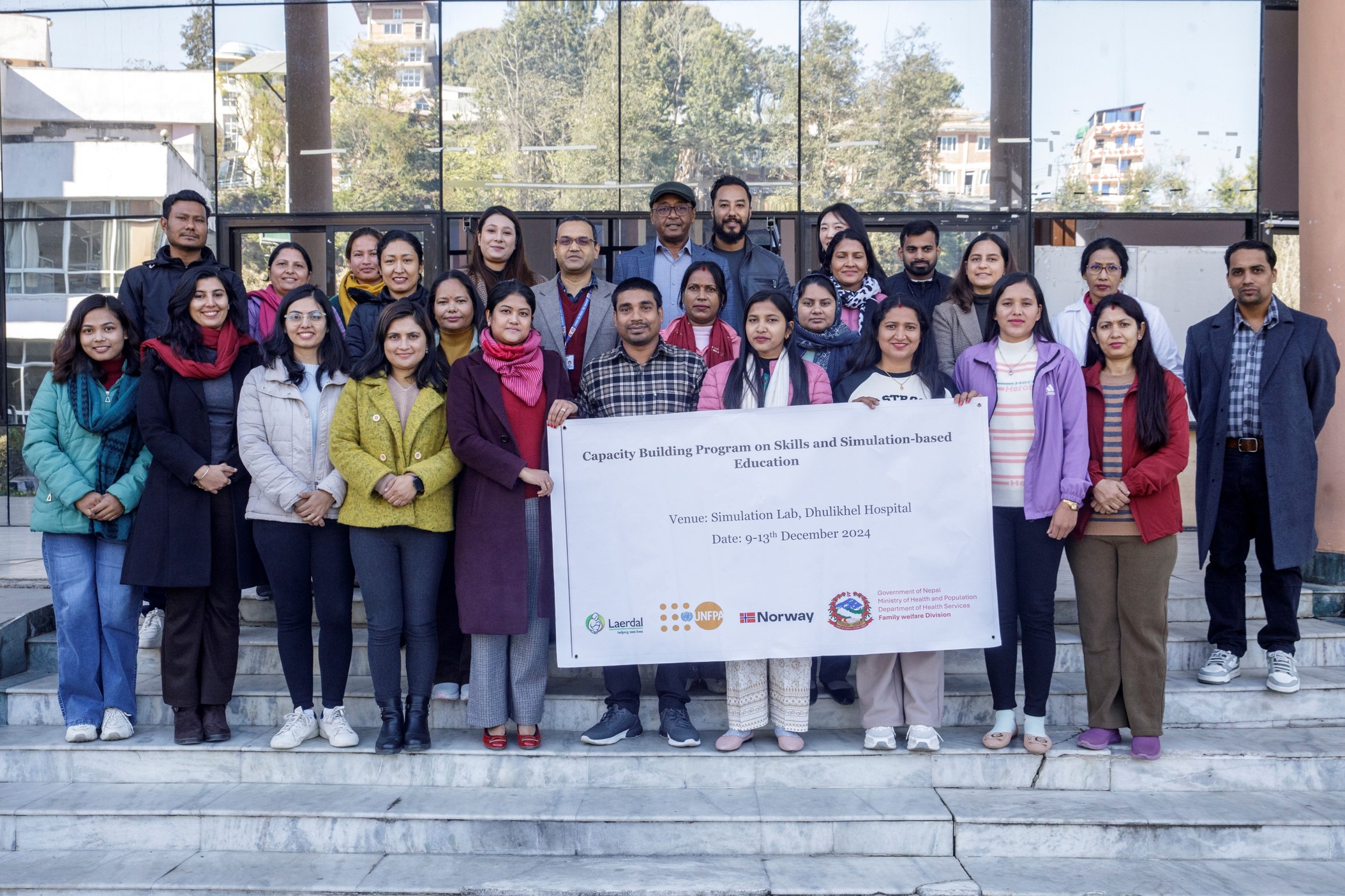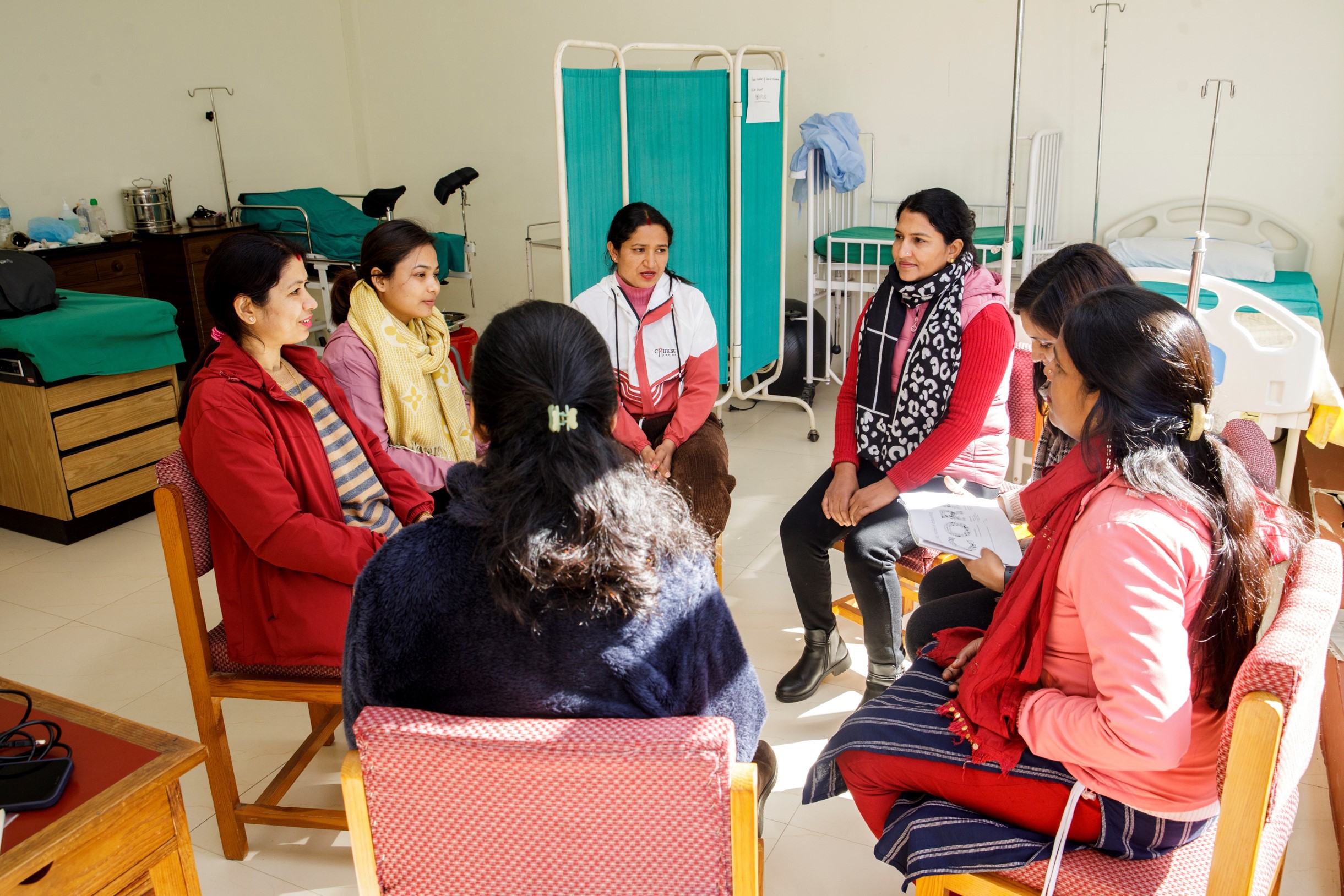Collaborating to improve access to hands-on simulation-based training for maternal & newborn care service providers in Nepal


In recent years, Nepal has made significant strides in improving maternal and newborn health outcomes and is committed to reducing mortality by 2030. However, the country still faces one of the highest rates of maternal deaths, many of which are preventable. Skilled and confident health personnel play a crucial role in turning this tide and can mean the difference between life and death.
To equip health facilities across Madhesh and Sudurpaschim provinces, efforts are underway to strengthen the competencies of the healthcare workforce providing maternal and newborn care. By establishing effective training setups that emphasize low-dose, high-frequency skills practice and simulation sessions, these initiatives aim to enhance the quality of care received by mothers and newborns. This approach not only builds the capacity of health personnel but also ensures sustainable improvements in maternal and newborn outcomes.
This effort comes underway with a new collaboration led by Family Welfare Division of the Ministry of Health and Population, funded by Norway, supported by UNFPA, and implemented by Midwifery Society of Nepal (MIDSON) in partnership with Laerdal Global Health.

Image: A selected group of healthcare personnel from across the two regions were given training in facilitating simulation-based education, including SimBegin, at the simulation lab at Dhulikhel Hospital/ Kathmandu University School of Medical Sciences.
Young Hong, Representative for UNFPA in Nepal says: “While Nepal has made significant improvements in the sexual and reproductive health sector, the 2021 Maternal Mortality Report highlights that most maternal deaths in Nepal are preventable, with 57% occurring in health facilities due to delays in care, 26% at home, and 17% during transit or referrals. These findings underscore the urgent need to build the capacity of healthcare professionals through continuous, hands-on, high-quality training."
By implementing simulation-based education and low-dose, high-frequency skills training, this collaboration aims to strengthen the quality of care and reduce preventable maternal deaths. We are confident this initiative will serve as a positive example of how innovative, practical training can transform clinical practices and improve outcomes for mothers and newborns across Nepal.
Unisha Shrestha, Implementation Manager in Nepal for Laerdal Global Health says: “We are delighted to provide technical expertise for this project. This includes assessing the needs of the participating health institutions to effectively deliver simulation training; supporting in the establishment of simulation labs and corners within health facilities; capacity building on skills and simulation-based methodology; and ensuring low-dose, high-frequency trainings along with important mentoring systems are embedded into facilities. All of this is essential for supporting sustainable, continuous quality improvement.”
By assessing the needs of the participating health facilities, along with ongoing facility training data, simulation sessions and trainings will be delivered. These may include technical skills like the key steps to managing postpartum hemorrhage (PPH) or may be more focussed on developing effective communication and team working through scenario training. Importantly, the developmental activities are designed to be easily integrated into the health care workers’ days, without it overburdening the already busy professionals.
Simulation has become a valued pedagogy in healthcare education, enhancing provider competence and quality of care. It enables teaching, learning, and assessment in a safe environment through immersion, reflection, feedback, and practice, minimizing real-life risks while achieving essential competencies.
 Image: A debriefing session takes place as part of building capacity of healthcare personnel to facilitate effective simulation-based education.
Image: A debriefing session takes place as part of building capacity of healthcare personnel to facilitate effective simulation-based education.
To ensure long-term impact of the project, the SimBegin simulation facilitator course has trained 11 healthcare personnel. This equips them with the skills to deliver high-quality simulation and creates knowledgeable champions on-site to encourage ongoing low-dose, high-frequency training. They will also be able to identify training needs and gaps beyond the project.